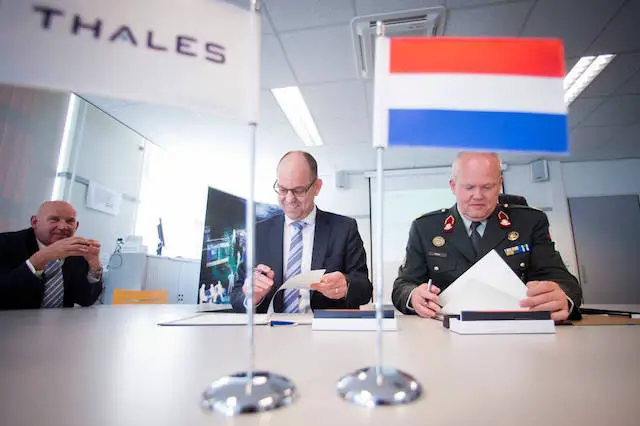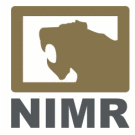|
|
|||
|
Defence & Security News - Netherlands
|
|||
|
|
|||
| Dutch Cyber Command to set up training and testing facility with Thales | |||
|
The Dutch Defence Cyber Command and Thales have signed an agreement to set up a Cyber training and testing centre. The Cyber Range as it will be known, will be based at Dumoulin Barracks in Soesterberg region. Its operation will allow the Dutch Armed Forces to train their personnel and test new technologies and procedures in a safe and secure environment.
|
|||
|
|
|||
 Dr. Ir. René van Buuren (left) and Brig. Gen. Hans Folmer (right) sign the agreement for the set up of the Cyber training and test centre (Photo: Dutch MoD) Dr. Ir. René van Buuren (left) and Brig. Gen. Hans Folmer (right) sign the agreement for the set up of the Cyber training and test centre (Photo: Dutch MoD) |
|||
|
|
|||
|
The Defence Cyber Command is part of the Dutch Armed Forces. Its mission is to develop and prepare contingency plans, train personnel and conduct cyber operations. According to the Commander of the Defence Cyber Command, Brigadier General Hans Folmer, “all forms of cyber operations can be simulated here. This is essential for training personnel and testing systems. The CyberLab is an important step for the Defence Cyber Command.” Thales’ Director of Cyber Security, Dr. Ir. René van Buuren said: “The primary task of Defence is to protect our safety, our troops must at all times be able to rely on the equipment and systems to achieve this. After all, a radio link that is intercepted, thus giving away your position is worthless. This cyber Range allows Defence, in addition to training its people, to control the complexity of the security of its systems. Following on from undertakings such as the Dutch Aerospace Centre (NLR) and Delft Hydraulics, where models are tested in advanced testing facilities, this is the next necessary step in the IT domain. Defence is a pioneer in this." The new installation could be linked with similar facilities and cyber laboratories whether they belong to state organizations and ministries or private institutions, in the Netherlands or abroad. That means, by joining their forces, the various parties will be able to organize large-scale research projects or large-scale simulation and training exercises. The procedures can be recorded and paused at any time in order for the operators to evaluate the results and adapt their procedures accordingly. |
|||














